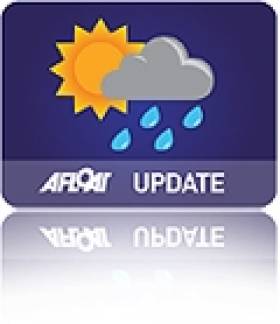Displaying items by tag: Peter O'Donnell
New Website For Irish Weather Enthusiasts
Ireland's first dedicated weather news and long range forecast website, Irish Weather Online has been launched. The independently run website has already been profiled on The Weather Channel in the US since it went live last week.
Described as a website by weather enthusiasts for weather enthusiasts, the site features a daily long range weather forecast from climatologist Peter O'Donnell, the latest news relating to the weather and climate in Ireland, and weather related video and imagery.
Live weather conditions in over 50 locations throughout the country are hosted on the site, courtesy of Ireland's Weather Network.
There also dedicated sections to ski conditions at resorts around the world, the latest recorded earth tremors in Ireland and the UK (provided by the British Geological Survey), lightning reports from Ireland, real-time weather conditions in cities all over the world, and a timeline of extreme weather events down through Irish history.
iWeather Online also hosts a 'Live chat' forum which enables visitors to engage with other weather enthusiasts on the issues of the day.
According to iWeather Online founder Mark Dunphy: ""Every conversation in Ireland begins with a comment on the day's weather. Consequently, we saw there was considerable scope for developing an all inclusive portal for weather related information and by doing so tap into the huge interest among Irish people in the weather. The website's success depends on the contributions of weather enthusiasts from every county in Ireland and by providing relevant, up to date weather information we aim to become Ireland's number source for Irish weather news and information."
"The timing of the website launch last week was somewhat fortuitous as we went live less than 24 hours before Storm Carmen brought some of the strongest winds recorded in the country in recent years. A real-time report on the storm and its impact around the country attracted thousands of visitors from throughout Ireland and abroad which assisted us to providing a pictorial timeline of the storm. Some of these images were subsequently broadcast to millions of viewers of The Weather Channel in the USA.
"Many of the initial contributions to the site have come from users of the hugely popular weather forum on www.boards.ie", he added.
Visitors to the site are invited to submit pictures and videos to [email protected].
For more visit HERE





























































